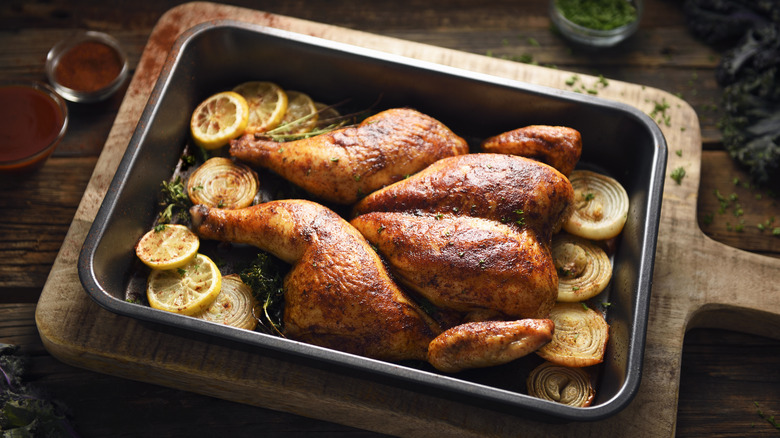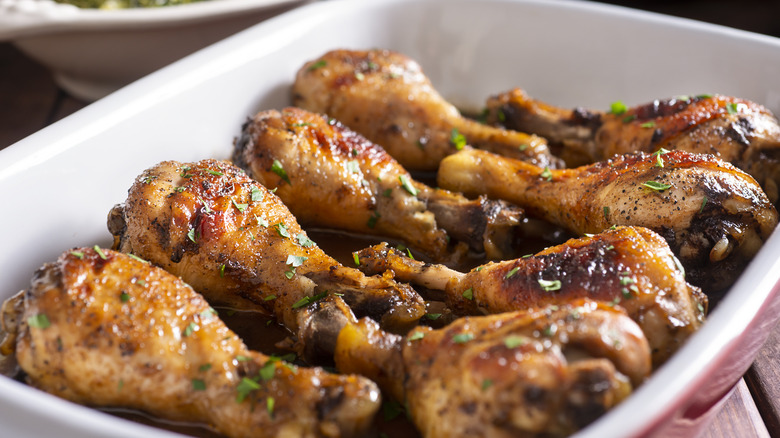Why High Temperatures Are The Key To Juicy Chicken You'll Want To Eat
Chicken can be a bit tricky to cook. While you can eat beef medium rare, chicken must be cooked to an internal temperature of 165 degrees F to avoid nasty food-borne illnesses like Salmonella, according to the Centers for Disease Control and Prevention. However, if you cook it too long, then you end up with meat that's the consistency of well-worn leather. If you want the perfect chicken that's both tender and juicy then you might want to consider cranking up your heat.
High temperatures can quickly cook your chicken, leaving it moist and easy to chew. This may go against the conventional wisdom of slow-roasting at a low temperature over several hours, but high temperatures will break down connective tissues in the meat, leading to tender succulent chicken. Likewise, baking the chicken at a higher temperature for a shorter amount of time will help the bird retain more of its juices and moisture because it spends less time in the oven where it runs the risk of drying out.
The trick to cooking at high temperatures, especially if you want to avoid common mistakes when cooking chicken breasts in particular, is to remove the chicken slightly before it's finished cooking so it doesn't dry out. The chicken continues to cook internally, so place foil over the meat after you remove it from the heat and let it sit for around 10 to 15 minutes. From there, your chicken should be fully cooked, juicy, and ready to serve.
Caveats to cooking chicken at a higher temperature
It's important to note some caveats when it comes to employing this method to cook your favorite chicken dinner recipes. For chicken breasts, you may want to consider flattening out the chicken with a mallet before cooking so that the meat is an even thickness and shape, then baking at a temperature of 450 degrees F for around 25 minutes.
Meanwhile, you can slightly lower the temperature to 425 degrees F for chicken wings since they have less meat on the bone. While the goal is to get your internal temperature to around 165 degrees F for chicken breasts, you may want to get a slightly higher internal temp for dark meat to help make it more tender. Dark meat like chicken legs and thighs will also need a slightly longer cooking time than chicken breasts. This is because dark meat holds more connective tissues than white meat. Likewise, cooking an entire bird also requires a longer cooking time than individual pieces of chicken, but cooking a whole chicken at a higher temperature will help give the bird a crispy golden skin.

